But construction leaders are warning that its recommendations must be acted upon rather than left to sit-on-the-shelf like previous industry reports.
The Construction 2025 report was officially launched at today’s Government Construction Summit in London.
Industry and Government has worked together to produce the report which is designed as a route map towards more efficient construction.
Headline targets of the report by 2025 are:
- A 33% reduction in both the initial cost of construction and the whole life cost of assets
- A 50% reduction in the overall time from inception to completion for new build and refurbished assets
- A 50% reduction in greenhouse gas emissions in the built environment
- A 50% reduction in the trade gap between total exports and total imports for construction products and materials
The report also contains plans for:
- The industry wide roll-out of BIM
- Tackling skills and manufacturing capacity and capability issues
- Assisting the wider use of apprenticeships and encouraging new entrants
- Developing the construction pipeline and a demand map to 2025
- Identifying new approaches to rationalise pre-qualification
- Improving SME access to financial support and tackle lengthy and late payment
- Increasing levels of innovation in the sector
- Improving the image of the industry
The strategy will now be implemented by the newly-created Construction Leadership Council co-chaired by Business Secretary Vince Cable and Network Rail Chief Executive Sir David Higgins.
Sir David said: “This strategy’s publication is just the first step in putting UK construction at the forefront of the global market – strong leadership will be vital in driving lasting change.
“The Construction Leadership Council will provide a forum for industry and Government to work together in pursuit of our ambitions.”
Cable said: “Last week we announced £100 billion for new infrastructure to get Britain building again. New roads, railways and energy projects will boost the economy and provide jobs across the country.
”I want to make sure we maximise our return on this money. Today’s industrial strategy will help firms innovate and export more. It will also help train a next generation of construction workers and look at what skills gaps we need to fill.
“We cannot make these changes alone, all of this has been designed by working closely with the industry. I look forward to working even more closely with business through the new Construction Leadership Council.”
Members of the Strategic Forum for Construction worked closely with government to develop the report.
Strategic Forum for Construction Chairman Bill Bolsover CBE said: “Over the last six months we have seen genuine partnership working between industry and government to produce today’s strategy.
“However this must not be a document that sits on a shelf.
“There is a real opportunity to change our industry and we must grasp it. As the lead body representing all parts of the industry, the Forum is uniquely placed to fulfil this role”
The UK’s civil engineers have hailed the report as a potential “game changer”.
Alasdair Reisner, director of external affairs for the Civil Engineering Contractors Association (CECA), said: “At the heart of the Construction 2025 strategy is a commitment to remove barriers to innovation and help to build a leaner, greener construction industry for the benefit of the wider economy.
“Construction 2025 could be a genuine game changer for the construction sector if its recommendations are implemented in full. By 2025 it is hoped that UK construction could deliver lower costs, faster project delivery, and an improvement in its share of exports.”
To download a full copy of the report click here
Industry reaction to the report:
Geoff Cooper, Chief Executive of Travis Perkins plc and Chairman of the Construction Products Association, said: “An Industrial Strategy is a great opportunity both for our sector and our country, and we’ve been calling for this kind of partnership for quite some time.”This is the start of something new for the construction sector, and it’s a chance to take concerted, coordinated action to boost growth and create jobs. We have to get behind it and make it work”.
Kevin Louch, Managing Director of Stanford Industrial Concrete Flooring and President of the National Specialist Contractors Council said: “The construction sector is extremely diverse and as an enabling industry we provide the infrastructure, built environment and solutions necessary for all other sectors to do business.
“The opportunity to play a part in transforming our industry must not be missed by our generation and I am delighted to be a part of it”.
Simon Diggle, Chairman, Construction Client’s Group said: “The Construction Clients’ Group are pleased to have worked with the government and industry team to produce Construction 2025.
“Through the combined strength of our public and private sector membership we are well placed to support delivery of the 2025 vision.
:Strong construction client leadership is critical to ensuring delivery of sustainable UK economic growth and positioning Britain at the forefront of global construction”.
Jack Pringle, Chairman, Construction Industry Council said: “At last, a construction industry strategy led by government in partnership with the industry.
“The most important part of this is the vision of a modern, attractive, digital, integrated industry that gives clients better, faster, cheaper and greener products – and the route map to achieve this”.
Representing the Construction Alliance, Julia Evans, Chief Executive of the National Federation of Builders said: “The production of the Industrial strategy for construction has been an object lesson in co-operative working.
“Now is the time for the industry to collaborate right across the sector and with government for collective delivery. Together those involved stand ready to do this with passion and commitment”.
Trevor Hursthouse OBE, Chairman, SEC Group said: “The Strategy is about transforming our levels of performance with high end skills, innovation and use of digital technologies to the fore.
“To achieve this both government and industry must work together to remove outdated and wasteful practices.
“Moreover past experience tell us that effective implementation will be required if we are to achieve the vision set out in the Strategy”.







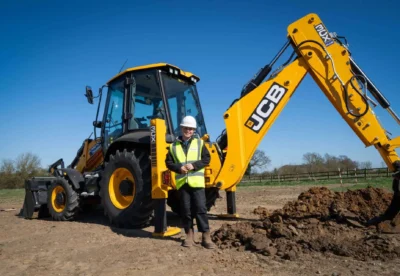








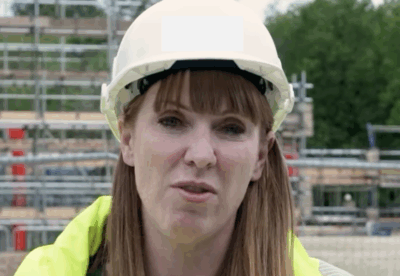










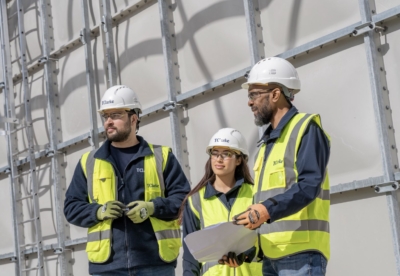
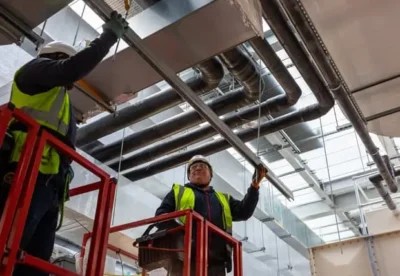








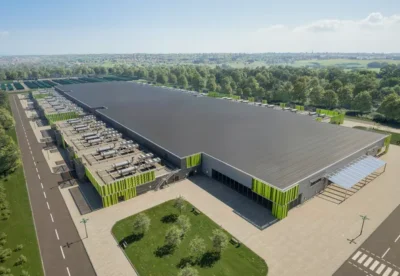














 (300 x 250 px) (2).png)


